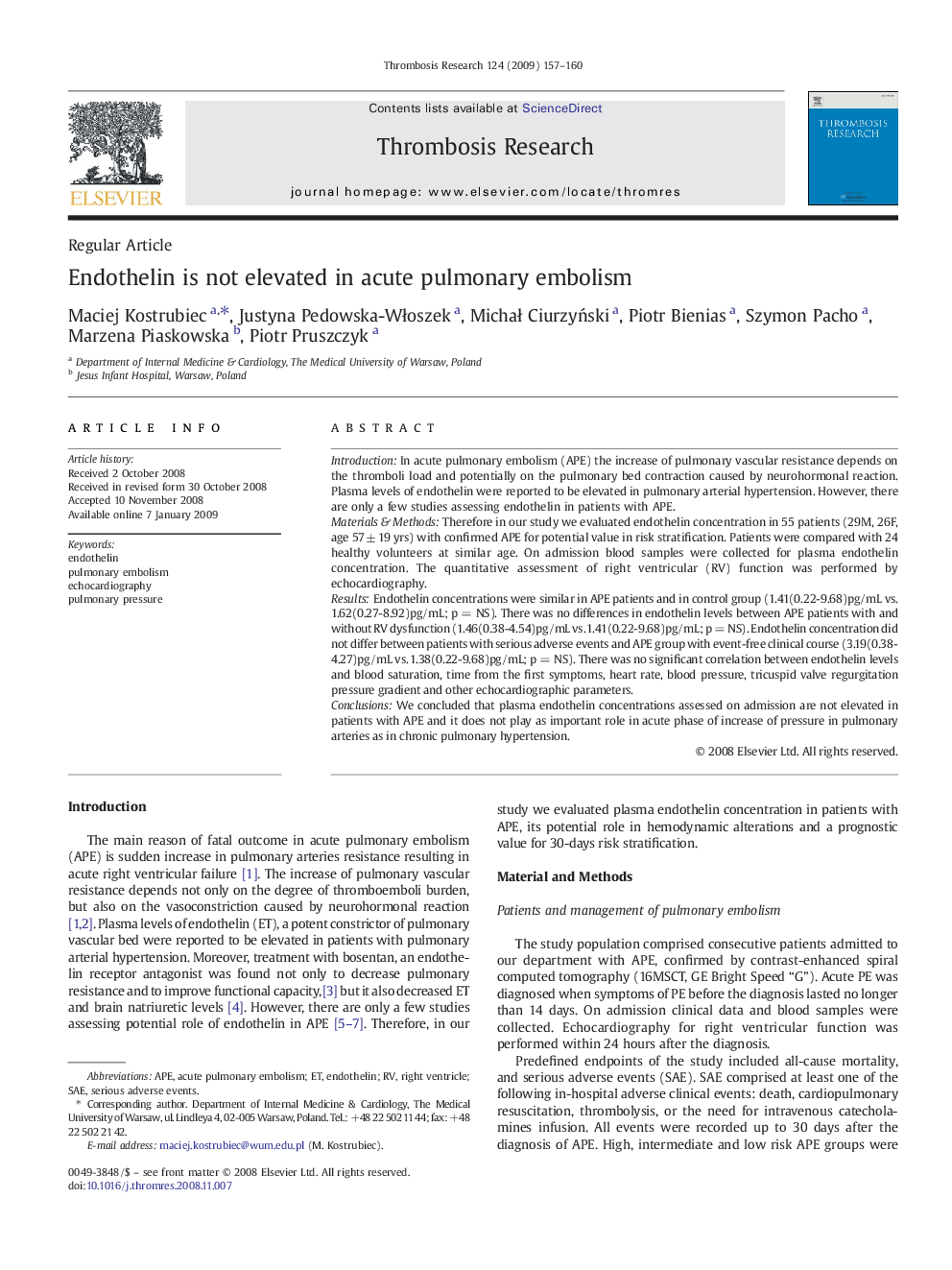| Article ID | Journal | Published Year | Pages | File Type |
|---|---|---|---|---|
| 3029410 | Thrombosis Research | 2009 | 4 Pages |
IntroductionIn acute pulmonary embolism (APE) the increase of pulmonary vascular resistance depends on the thromboli load and potentially on the pulmonary bed contraction caused by neurohormonal reaction. Plasma levels of endothelin were reported to be elevated in pulmonary arterial hypertension. However, there are only a few studies assessing endothelin in patients with APE.Materials & MethodsTherefore in our study we evaluated endothelin concentration in 55 patients (29M, 26F, age 57 ± 19 yrs) with confirmed APE for potential value in risk stratification. Patients were compared with 24 healthy volunteers at similar age. On admission blood samples were collected for plasma endothelin concentration. The quantitative assessment of right ventricular (RV) function was performed by echocardiography.ResultsEndothelin concentrations were similar in APE patients and in control group (1.41(0.22-9.68)pg/mL vs. 1.62(0.27-8.92)pg/mL; p = NS). There was no differences in endothelin levels between APE patients with and without RV dysfunction (1.46(0.38-4.54)pg/mL vs. 1.41(0.22-9.68)pg/mL; p = NS). Endothelin concentration did not differ between patients with serious adverse events and APE group with event-free clinical course (3.19(0.38-4.27)pg/mL vs. 1.38(0.22-9.68)pg/mL; p = NS). There was no significant correlation between endothelin levels and blood saturation, time from the first symptoms, heart rate, blood pressure, tricuspid valve regurgitation pressure gradient and other echocardiographic parameters.ConclusionsWe concluded that plasma endothelin concentrations assessed on admission are not elevated in patients with APE and it does not play as important role in acute phase of increase of pressure in pulmonary arteries as in chronic pulmonary hypertension.
